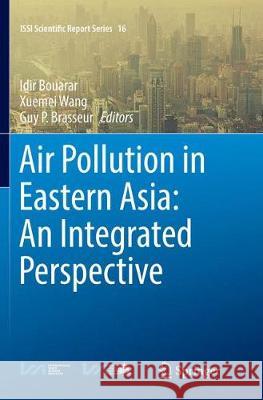Air Pollution in Eastern Asia: An Integrated Perspective » książka
topmenu
Air Pollution in Eastern Asia: An Integrated Perspective
ISBN-13: 9783319866345 / Angielski / Miękka / 2018 / 504 str.
Kategorie:
Kategorie BISAC:
Wydawca:
Springer
Seria wydawnicza:
Język:
Angielski
ISBN-13:
9783319866345
Rok wydania:
2018
Wydanie:
Softcover Repri
Ilość stron:
504
Waga:
0.99 kg
Wymiary:
23.42 x 15.27 x 3.17
Oprawa:
Miękka
Wolumenów:
01











